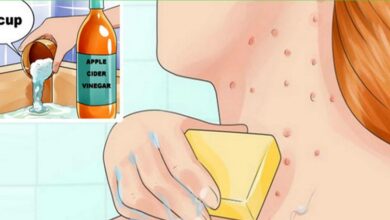REASONS FOR GETTING SKIN FUNGUS AND HOW TO PREVENT IT
Tinea is a common group of fungal skin infections that can affect areas such as the feet, groin and scalp. Tinea infections are easily spread from person to person, from touching someone who has the infection or by touching surfaces where the fungus is present (e.g., shower floors, areas around swimming pools, and locker rooms). Some fungal infections are caused by a type of yeast, Candida. It can affect areas such as the skin, mouth, throat, and genitals. It especially occurs in areas where it is warm and moist, including the armpits, under the breasts, behind the knees, and the groin.
Here are some common superficial fungal infections:
- Oral thrush: a yeast infection that causes white patches in the mouth or throat.
- Vaginal yeast infection: an itchy infection of the vagina that can cause white cottage-cheese like discharge.
- Diaper rash: a fungal infection that infects the skin on a baby’s bottom causing red irritation usually due to warm and moist conditions inside the diaper.
- Athlete’s foot: a fungal infection on the skin of the feet, especially between the toes.
- Jock itch: an infection that occurs on the groin or upper thigh.
- Nail infection: a fungal infection of the fingernails or toenails. The nails become thick, yellow or white in color and are more prone to crack or break.
Superficial yeast and fungal infections are generally not a serious problem in healthy people, but they can occur easily in anyone, and can be very annoying. To learn about the different types of fungal infections, please visit the websites below under Take the Next Step.
Treating Fungal Infections
If you aren’t sure if your skin condition is due to a fungal infection, consult your healthcare provider. Your doctor or pharmacist can recommend over-the-counter antifungal treatments (usually ointment or cream). But know that prescription treatments (ointment, cream or medicines you take by mouth) may be needed to treat stubborn fungal or yeast infections. If you have or think you may have a fungal infection, be sure to see your doctor and/or pharmacist.
What You Can Do To Prevent Superficial Infections
Anyone can get a fungal infection, especially people with weakened immune systems. Moist, unclean, cool and unaired areas on our body can become fertile ground to develop superficial fungal infection. This may include your toenails. It’s good to know what to do to prevent them.
Here are some things you can do to prevent fungal infections from recurring:
- Maintain good overall hygiene, including oral hygiene (to help prevent thrush). Keep your skin clean and dry
- Keep your feet clean, cool and dry. Wear clean socks and change them daily. Wear shoes that allow your feet to “breathe”
- Do not walk barefoot in public places, such as showers or gym locker rooms
- Trim your fingernails and toenails to keep them clean and short
- Wash your hands after touching people or animals. Fungal infections are contagious
- If you think your pet has ringworm, have your veterinarian check for and treat the condition



